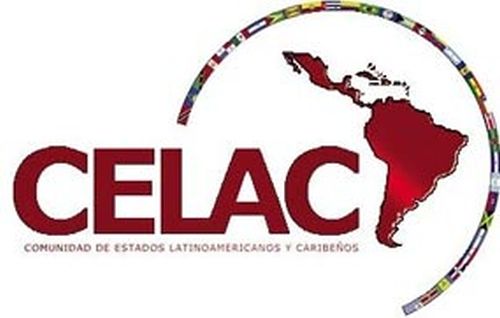The Summit of the Community of Latin American and Caribbean States (CELAC), held in Ecuador, focused on the economic crisis, the epidemic caused by the Zika virus and the peace process in Colombia
In the economic field, Venezuelan President Nicolas Maduro proposed his peers from the continent to create a tactic plan against crises for the region. It is time for a plan of solidarity, complementariness, shared development of Latin America and the Caribbean. It is time to prove ourselves, as we have done in politics, said the president at the plenary session of the event.
He noted that “in times of crisis, the community, the neighbors and the family seek one another for help,” adding that the integration bloc founded in 2010 must focus this year on the economic matter.
For her part, Chilean President Michelle Bachelet also call to focus on the difficult economic situation being faced by the CELAC member countries as a result of the drop in commodity prices like oil and the slowdown of the Chinese economy.
The inequality that prevails in Latin America, where, according to Bachelet, poverty affects 28 percent, was another recurrent issue in the speeches of the presidents or their representatives who participated in the summit, held at the headquarters of the Union of South American Nations (UNASUR) in northern Quito.
In that regard, the host of the 4th Summit, Ecuadorian President Rafael Correa stressed that the biggest challenge of CELAC is to sell poverty, which is the fruit of the bad distribution of incomes and wealth.
Correa, who handed over the pro tempore presidency of CELAC to his Dominican counterpart, Danilo Medina, noted that in the private meeting held by the heads of States, they agreed to take concrete measures to fight the epidemic caused by the Zika virus in the region.
In that regard, Brazilian President Dilma Rousseff said that the ministers of health of the region will meet next Tuesday in Uruguay to design actions against the disease, which is transmitted by the Aedes aegypti mosquito.
The only way to cooperate now is by promoting among ourselves the best practices to fight the virus or the best technologies, she stressed.
The leaders of CELAC, which groups all countries of the American continent, except for the United States and Canada, agreed on lauding the talks that have been held in Havana since 2012 between the Colombian guerrillas and the government to end the over-50-year-old armed conflict in that country.
After congratulating President Juan Manuel Santos for his contribution to the peace process, his colleagues noted the bloc’s willingness to join the United Nations mission that will supervise the ceasefire and the surrender of weapons by the Revolutionary Armed Forces of Colombia-People’s Army (FARC-EP).
Another agreement was to send a mission of foreign ministers to Haiti to get first-hand information about the election crisis in that Caribbean nation, after the opposition refused to participate in the second round of elections last Sunday.
At the end of the summit, it was announced the approval of a score of special declarations, including a call on the United States to lift the economic, commercial and financial blockade on Cuba and to return the Guantanamo territory to the Caribbean island.
In another text, the summit ratified the group’s solidarity for Argentina’s legitimate demand for the Malvinas (Falkland) Islands, and CELAC’s rejection of the US decree accusing Venezuela of being a danger for the northern country’s national security.
The new pro tempore president of CELAC, Dominican President Danilo Medina, committed to boosting the 33-strong bloc’s agenda in a year of huge economic, social, environmental and ideological challenges.
 Escambray ENGLISH EDITION
Escambray ENGLISH EDITION





Escambray reserves the right to publish comments.